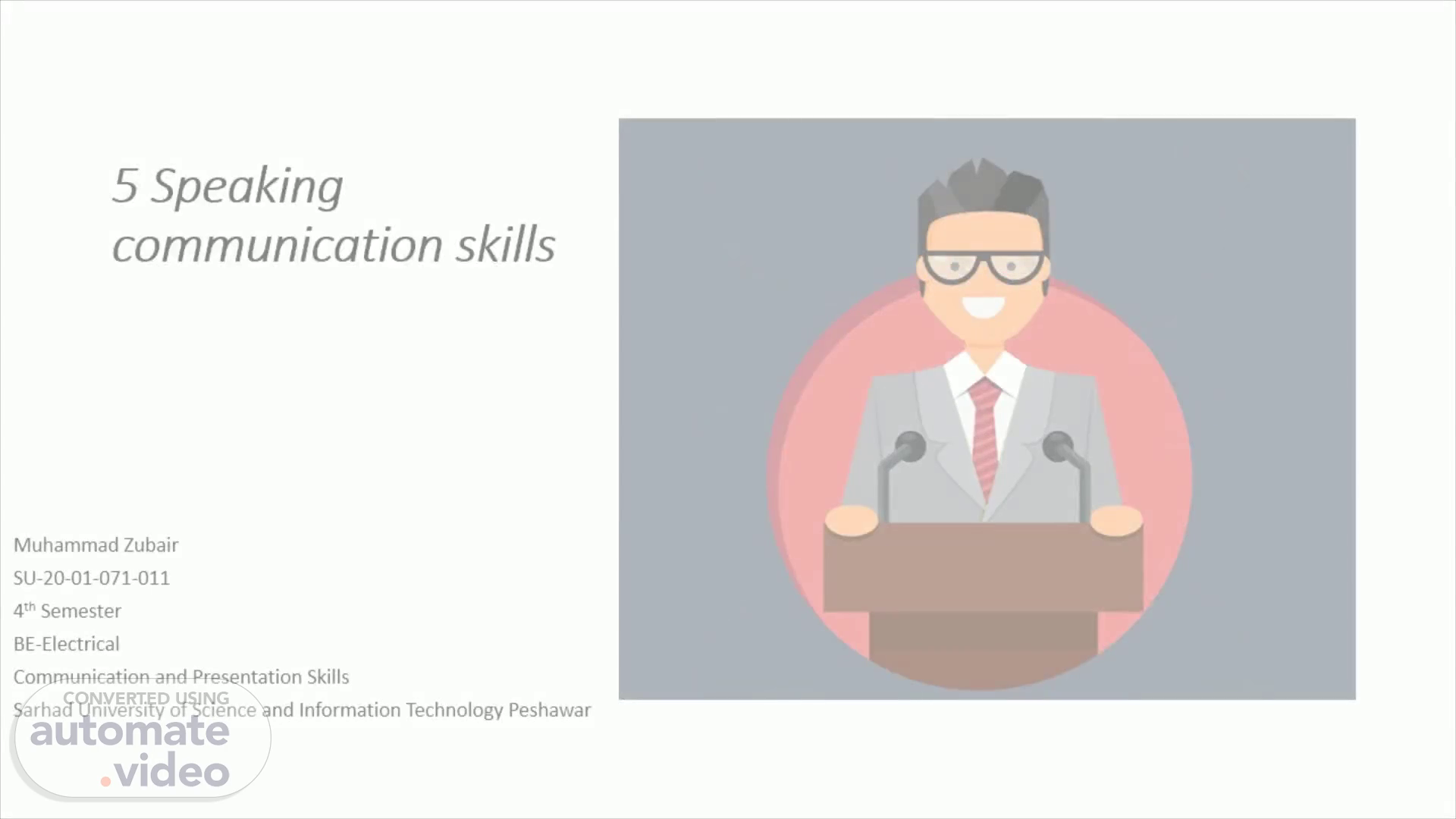
5 Speaking communication skills
Scene 1 (0s)
5 Speaking communication skills. Muhammad Zubair SU-20-01-071-011 4 th Semester BE-Electrical Communication and Presentation Skills Sarhad University of Science and Information Technology Peshawar.
Scene 2 (11s)
1. Know yourself.. All good communication starts from a place of self-awareness. When you’re communicating with other people, you need to be aware of your inner monologue so you don’t end up taking out a bad mood on someone else, assuming the other person can read your mind, being discriminatory, appearing unconfident and so on. It’s also important to know what you’re hoping to achieve from a given interaction so you can tailor your message accordingly..
Scene 3 (33s)
2. Know your audience.. The best communication arises out of understanding whomever you’re speaking to. Knowing your audience’s motivations, preferred communication styles, learning styles, etc., allows you to adapt your message and increase the odds of effective communication. Making a personal connection facilitates empathy, puts people at ease and builds trust. Just one caveat: In order to be effective, personal connections need to be genuine, not exploitative..
Scene 4 (55s)
3. Be direct, specific and clear.. Clear-cut communication increases the likelihood that people will comprehend and take action on whatever you’re asking from them. It’s better to over-explain something than to leave room for misunderstanding. Whenever you’re delivering an assignment or asking for assistance from someone, focus on providing simple, actionable and specific instructions. It’s helpful to prepare your thoughts in advance so you include all the relevant details. Don’t end a conversation until you’re sure the other person understands your objectives and how to achieve them. Deliver these instructions in a friendly, open way so the other person knows they can approach you with follow-up questions..
Scene 5 (1m 25s)
4. Listen more than you speak.. One of the best ways to encourage open and honest communication within a group is to model active listening. When someone is speaking to you, really listen to what they’re saying. Ask follow-up questions to demonstrate that you’re paying attention and to make sure there are no miscommunications. Keep an open mind and focus on thoughtfully responding to what they say instead of knee-jerk reacting to it. This practice builds rapport and understanding between the communicating parties..
Scene 6 (1m 50s)
5 . Be positive and respectful.. This one should go without saying, but sadly that’s not always the case. Prioritizing transparent, fair and respectful communication within a group is one of the best strategies for cultivating loyalty and boosting the team’s performance. Don’t hold your status over other people or use coercion or fear as motivators. Instead, focus on bringing an honest, positive and ego-less attitude to every situation that arises..